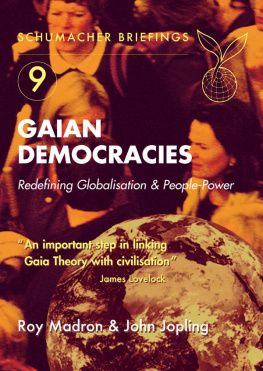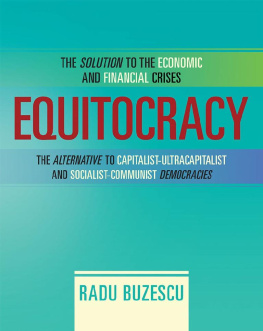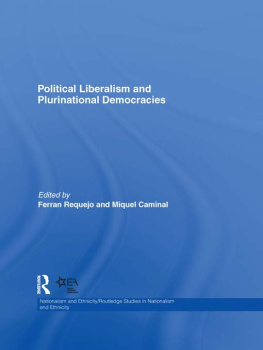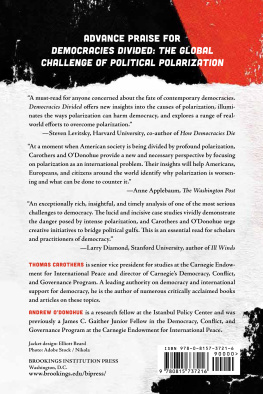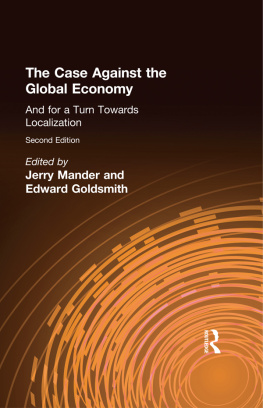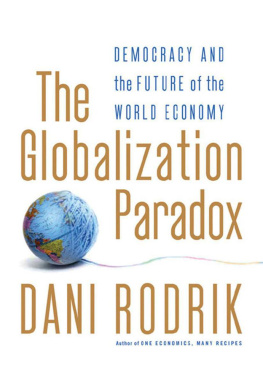I greatly admire the spirit and the range of this work. On the one hand, never has the need been greater for a shift in fundamental social thinking. But, on the other, never has the challenge of achieving such a thing been more daunting for the very reasons set out here with awful clarity.Philip Allott, Professor of International Public Law, Cambridge University
A remarkable work setting out a clear direction, and drawing a clear distinction between what is and what can be.Gunter Pauli, Director of ZERI (Zero Emissions Research and Initiatives) and former President and CEO of ECOVER
An important document in helping to clarify the emerging vision of the future.Gary Alexander, Faculty of Technology, The Open University
An insightful contribution that goes to the heart of the thorny topic of democracy succinctly and convincingly. , in particular, is profound and should be added to the national schools curriculum!Dr Samir Rihani, Senior Research Fellow at the University of Liverpool, School of Politics
This is a real wake-up call, setting out a compelling framework for fundamental system change which unites two fields that have been separate for far too long: participatory governance and sustainable development.Lindsey Colbourne, InterAct and UK Sustainable Development Commission
The authors have very different backgrounds. Roy Madron spent fifteen years as a TV reporter and producer. In 1980, as a research fellow in the Participation Research Unit of the Manchester Business School, he conducted a long-term study of the use of participation strategies for improving the performance of social or business systems. He has since built on that research in his own practice as a consultant in systems improvement and participatory planning.
After practising as a barrister for thirty years, John Jopling has helped to establish numerous organisations seeking to contribute to a more just and healthy world. These include FIELD (Foundation for International Environmental Law and Development), Feasta (the Dublin-based foundation for the economics of sustainability) and the Sustainable London Trust, which published Creating a Sustainable London and London, Pathways to the Future. SLT is also the lead organisation in the World Wide Democracy Network, founded by the authors.
Schumacher Briefing No. 9
GAIAN DEMOCRACIES
Redefining Globalisation and People-Power
Roy Madron & John Jopling

published by Green Books
for The Schumacher Society
Contents
Examples from business; examples from politics
Engineered, or designed, systems; natural systems; purposeful human soft systems; emergent properties; self-organising; adaptive
Interdependence, cyclical processes and partnership; flexibility; diversity
Control and order; nested systems and recursive organisations; matching variety; feedback; system delay (lag); leverage; soft-systems and hard-systems thinking; wicked problems and tame problems; soft-systems methodologies; Gaian democracies as soft systems; the values that underpin purposeful human systems
Species extinction; destruction or deterioration of ecosystems; the depletion of inanimate resources; flying blind
Worldwide poverty; social issues as systemic issues
Unpredictable effects; a Gaian system-shift
Purpose; shared operational theories; the elite consensus; the global leadership cadre; the working partnership; the armoury of operational instruments
Gaia; shared purposes and principles; soft-systems concepts and methodologies; Paulo Freires learning principles; participatory change processes; liberating political leaders; network government
The economy; global problems
Changing the way we think; the global change-makers
Acknowledgements
It is only possible to write a work as wide-ranging and ambitious as this with a great deal of help and support. Most of the authors we have cited in the References and the Bibliography can have no idea of how valuable their work has been in shaping our thinking, and we owe them a great debt of gratitude. However, some authors and colleagues have made specific contributions that have considerably improved our original text, or given us the kind of encouragement that means so much in any creative enterprise. We would therefore like to express our warmest thanks to Gary Alexander, Phillip Allott, Luke Ashton, Brian Bloom, Bruce Buchanan, Don Chisholm, Lindsey Colbourne, Richard Douthwaite, Mark Garavan, Richard David Hames, Stephan Harding, Allen Hammond, James Lovelock, Gunter Pauli, John Raven, Phil Richardson, Samir Rihani, Allan Savory, Lloyd Timberlake and Shann Turnbull.
The unenviable task of checking references and incorporating amendments required by the authors fell to John Turnbull, our Associate at the World Wide Democracy Network. His care and attention is reflected in the final product.
As comparatively inexperienced authors, we could not have asked for a more skilled, sympathetic and challenging editor than Herbie Girardet. Moreover, it was he who commissioned the work from us on behalf of the Schumacher Society. The Gaian Democracies enterprise will always be indebted to Herbie and to the Schumacher Society for their vision and openness.
Finally, our heartfelt thanks go to our families and friends who have commented on various stages of the draft and cheered us on our sometimes tortuous and difficult path.
Roy Madron and John Jopling
February 2003
Foreword
by Dr Samir Rihani
Democracy has been roundly abused, more so now than ever before. Overt abuse is easy to see through. The most oppressive regimes often incorporate democratic in their title. Only a handful of sycophants take this self-delusion seriously.
Insidious abuse practiced by states that cite democratic behaviour as their distinguishing hallmark is an altogether different matter. At home, they boast of having political parties but there is little choice and the electorate have lost the incentive to vote. Abroad, they claim it as their aim in life to spread the virtues of democracy far and wide but their actions belie their words.
The claims are always lofty, and seem to follow the principle that you should tell a whopper when you mean to lie. Woodrow Wilson declared in 1917 that the world must be made safe for democracy. Franklin D. Roosevelt added in 1940, The USA must be the great arsenal of democracy. George W. Bush brought us up to date after the 11 September 2001 atrocities when he assured his fellow Americans that the terrorists hate the USA because it is democratic. On that basis, Iceland, with a record of democracy that goes back a thousand years, should be the natural focus for the terrorists wrath!
Clearly, there is a long way to go to achieve the state of Gaian democracy described so convincingly in this Schumacher Briefing. But a start on that trek is critically necessary at this point in time. The election that brought George W. Bush to power was a stark reminder that the arsenal of democracy is in a sorry state. Somoza, the Nicaraguan dictator, was at least candid in his response when accused of ballot rigging, You won the election, but I won the count. Bush dispensed with these niceties, and few were surprised or concerned. This resigned attitude is alarming.
Similarly, the actions of New Labour in government leave little room for anyone to accuse this administration of being overly democratic. Yet, only a few at home or abroad are prepared, at least openly, to challenge these malpractices. They are assumed to be part of the games politicians play. This cynicism is also frightening.
Next page
